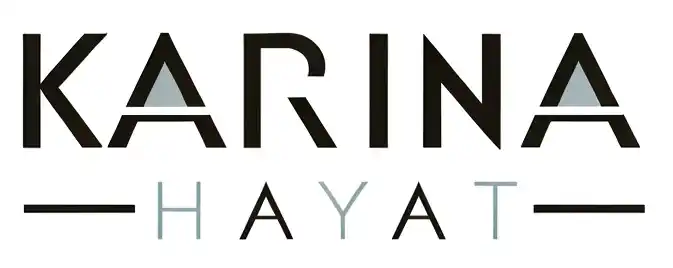Karina Hayat’s Reflections on Empowering Women Leaders Through Emotional Intelligence (E.Q)

As a woman in business, I’ve come to realize that the strongest leaders are not just the ones who make the toughest decisions but the ones who lead with empathy, insight, and emotional intelligence (EQ). Workplaces are constantly evolving, and so must our approach to leadership. Advocates for women in leadership emphasise that women offer something truly invaluable: the ability to lead with both heart and strategy.
It’s essential to understand that emotional intelligence isn’t just a nice-to-have quality; it’s a competitive advantage. It serves as a vital tool that enables leaders to read the room, understand the unspoken dynamics, and respond with clarity and confidence. In a world that is increasingly complex and fast-paced, women who harness their EQ are leading with resilience, building stronger teams, and driving meaningful results.
Understanding Emotional Intelligence: Our Superpower
At its core, emotional intelligence is about self-awareness and social awareness. It’s knowing how to manage your own emotions while also being in tune with the emotions of those around you. And let me tell you, in the boardroom, this skill can be your secret weapon. How often have we, as women, walked into meetings and instantly picked up on the dynamics at play? That subtle tension, or the unspoken agreement, is all part of our emotional radar—a radar that helps us make better decisions and build deeper connections with our teams and clients.
But here’s where EQ really shines: it allows us to lead from a place of authenticity. We’re not just checking off boxes or managing spreadsheets; we’re creating an environment where people feel seen, heard, and valued. And that’s where the magic happens. When your team knows you genuinely care, they show up stronger, more creative, and more committed.
Why Women Excel in Emotional Intelligence
It’s no secret that women are often more attuned to emotional cues. For many of us, it’s a skill we’ve had to develop from navigating social expectations or even being the minority voice in the room. This awareness highlights that our qualities, such as empathy, active listening, and the ability to foster collaboration, are not merely “soft skills” but significant leadership strengths.
When I think about the women leaders I admire, it’s not just their intelligence or ambition that stands out—it’s their ability to connect on a human level. This is what sets us apart. We don’t shy away from emotion; we use it to lead with conviction and empathy. And as organizations move towards more inclusive, purpose-driven cultures, women who embrace their EQ are not just thriving—they’re leading the way.
Can Emotional Intelligence Be Learned? Absolutely
Here’s the good news: emotional intelligence isn’t something you’re either born with or without. It can be developed. It’s about slowing down, paying attention, and being intentional in how we engage with others. We have to practice being present, actively listen, and understand the power of non-verbal communication. Because as women, especially in leadership roles, we often face unique challenges that demand a higher level of emotional awareness.
But let’s be honest—developing emotional intelligence also requires us to trust ourselves. It’s easy to second-guess that gut feeling or downplay our emotional insights in a male-dominated industry. Yet, our instincts are often spot on. Learning to articulate our observations and back them up with data is how we bridge the gap between intuition and action. We can no longer afford to sit on our insights; we need to stand tall in them.
Why EQ Matters More Than Ever for Women in Leadership
Women, we’re at a pivotal moment. The old definitions of leadership—being the loudest or most aggressive in the room—no longer hold. Today, leaders are judged on their ability to inspire, engage, and bring people together toward a shared vision. And this is where women have a natural advantage.
Emotional intelligence is key to breaking through barriers, but it’s also what allows us to lead in a way that’s sustainable. We’re not interested in burnout culture or leadership that’s based on fear. Instead, we’re building organizations where people want to contribute their best because they know they matter. This kind of leadership—one rooted in EQ—isn’t just good for morale; it’s good for business.
Women who harness emotional intelligence can not only advance in their careers but also redefine what leadership looks like. We bring a different energy—one that values collaboration over competition and creativity over conformity. And as we step into more leadership roles, the entire business landscape is changing for the better.
The Future of Leadership: Women Leading with Emotional Intelligence
As women entrepreneurs, executives, and leaders, we have an opportunity to lead differently. Emotional intelligence isn’t about being overly sensitive or soft—it’s about being smart, strategic, and deeply connected to the people we work with. It’s about creating companies that are agile, empathetic, and truly human.
The future of leadership is about balance. It’s about being decisive without being dismissive, empathetic without losing sight of goals. And emotional intelligence is the key to making that balance work. Women who lean into their EQ are going to lead the charge in building workplaces that are not only more successful but also more inclusive and innovative.
So, to every woman stepping into leadership: don’t just aim to fit into the old models—transform them. Bring your emotional intelligence to the table and lead with purpose, compassion, and courage. The world needs more of us in charge.
How do you incorporate emotional intelligence into your leadership style?
